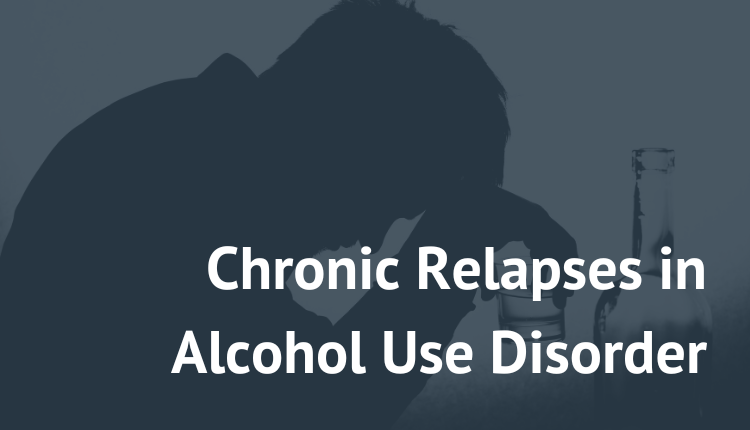Challenges and Solutions
Alcohol use disorder (AUD) poses a significant public health challenge, especially for those prone to chronic relapses. Chronic relapses, the repeated return to heavy drinking after periods of abstinence, complicate treatment and necessitate a multifaceted approach. At New Paradigm Recovery, we understand the unique struggles of those facing chronic relapses and are dedicated to providing effective, personalized care.
Understanding Chronic Relapses
Chronic relapse in AUD isn’t simply about willpower. It’s influenced by a mix of neurobiological, psychological, and social factors. Long-term alcohol use changes brain chemistry and structure, particularly in areas responsible for reward and decision-making. This leads to heightened cravings and reduced sensitivity to natural rewards, even after prolonged abstinence.
Chronic alcohol consumption alters brain chemistry and structure, affecting areas involved in reward, decision-making, and stress regulation. This means that even after stopping drinking, these changes predispose individuals to relapse.
Psychologically, many with chronic relapses struggle with co-occurring mental health disorders such as depression, anxiety, and PTSD. These conditions complicate treatment as they often require simultaneous management. Furthermore, cognitive distortions and maladaptive coping mechanisms, such as denial and minimization, hinder recovery efforts.
Social factors are also critical. Lack of a supportive network, exposure to high-risk environments, and unresolved interpersonal conflicts can trigger relapse. Additionally, stigma and discrimination against those with AUD can deter them from seeking help and adhering to treatment plans.
Complications in Treating Chronic Relapses
Treating chronic relapses in AUD is complex. Pharmacological treatments, such as naltrexone, acamprosate, and disulfiram, need careful monitoring due to liver damage and other physiological changes caused by prolonged alcohol abuse. Medication adherence is often poor in this population, complicating treatment further.
Psychological and behavioral therapies like cognitive-behavioral therapy (CBT) and motivational interviewing (MI) are crucial. However, their effectiveness can be limited due to deep-seated cognitive distortions and low motivation for change.
Integrated treatment models that address both AUD and psychiatric disorders are essential but challenging to implement. Coordination between addiction specialists, psychiatrists, and primary care providers is often required, increasing the potential for fragmented care.
Strategies to Enhance Treatment Outcomes
To effectively treat individuals with chronic relapses, a comprehensive and individualized approach is necessary. At New Paradigm Recovery, we focus on:
- Integrated Care Models: Combining pharmacotherapy, psychotherapy, and social support services to address the multifaceted needs of chronic relapsers.
- Harm Reduction Strategies: Implementing harm reduction approaches that focus on minimizing adverse consequences of alcohol use rather than insisting on complete abstinence.
- Relapse Prevention Plans: Developing detailed relapse prevention plans that identify high-risk situations and coping strategies, with regular follow-up and adjustments.
- Peer Support Programs: Leveraging the power of peer support through groups like Alcoholics Anonymous (AA) and other recovery communities to provide ongoing encouragement and accountability.
- Continuous Monitoring and Adaptation: Recognizing that recovery is a dynamic process requiring ongoing assessment and adaptation of treatment plans to address emerging challenges.
Combating stigma requires concerted efforts to educate the public, train healthcare providers, and foster a supportive and nonjudgmental treatment environment.
Conclusion
Treating alcohol use disorder in individuals with a history of chronic relapses presents significant challenges. By understanding the neurobiological, psychological, and social dimensions of chronic relapse, we can develop effective treatment strategies. At New Paradigm Recovery, we are committed to providing integrated care models, harm reduction strategies, and continuous support to enhance treatment outcomes and support sustained recovery.
For those struggling with chronic relapses, help is available. Contact New Paradigm Recovery today to learn more about our comprehensive treatment programs designed to meet your unique needs.
References:
References:
- Koob, G. F., & Volkow, N. D. (2016). Neurobiology of addiction: a neurocircuitry analysis. The Lancet Psychiatry, 3(8), 760-773. doi: 10.1016/S2215-0366(16)00104-8
- Hart, A. B., & Kranzler, H. R. (2015). Alcohol dependence genetics: lessons learned from genome-wide association studies (GWAS) and post-GWAS analyses. Alcohol Research: Current Reviews, 37(1), 49-76. doi: 10.1111/acer.12792
- Kelly, T. M., & Daley, D. C. (2013). Integrated treatment of substance use and psychiatric disorders. Social Work in Public Health, 28(3-4), 388-406.doi: 10.1080/19371918.2013.774673
- Room, R., Babor, T., & Rehm, J. (2005). Alcohol and public health. The Lancet, 365(9458), 519-530.
- Soyka, M., & Lieb, M. (2015). Recent developments in pharmacotherapy of alcoholism. Pharmacopsychiatry, 48(4-5), 123-134.
- Miller, W. R., Zweben, A., DiClemente, C. C., & Rychtarik, R. G. (2011). Motivational Enhancement Therapy Manual: A Clinical Research Guide for Therapists Treating Individuals With Alcohol Abuse and Dependence. DIANE Publishing.
- McHugh, R. K., Hearon, B. A., & Otto, M. W. (2014). Cognitive behavioral therapy for substance use disorders. Psychiatric Clinics, 37(3), 511-525.
- Kranzler, H. R., & McKay, J. R. (2012). Personalized treatment of alcohol dependence. Current Psychiatry Reports, 14(5), 486-493.
- Müller, C. A., Geisel, O., Pelz, P., Hillemacher, T., Sperling, W., & Bleich, S. (2019). Alcohol dependence as a neurological disorder: Treatment and research approaches. Frontiers in Psychiatry, 10, 754.
- Bogenschutz, M. P., & Johnson, M. W. (2016). Classic hallucinogens in the treatment of addictions. Progress in Neuro-Psychopharmacology and Biological Psychiatry, 64, 250-258.
- Gustafson, D. H., McTavish, F. M., Chih, M. Y., Atwood, A. K., Johnson, R. A., Boyle, M. G., … & Shah, D. (2014). A smartphone application to support recovery from alcoholism: a randomized clinical trial. JAMA Psychiatry, 71(5), 566-572.

